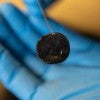
Bacterial sensors send a jolt of electricity when triggered
Rice researchers develop programmable bacteria that sense contaminants and release an electronic signal in real time.

Bacterial sensors send a jolt of electricity when triggered
Rice researchers develop programmable bacteria that sense contaminants and release an electronic signal in real time.

NSF backs bid to speed environmental tests for viruses
The NSF backs Rice University efforts to speed the analysis of wastewater for coronaviruses from hours to seconds.

Rice lab grows macroscale, modular materials from bacteria
Rice bioscientists have created bacteria that self-assembles into a material like putty that could soak up pollutants.
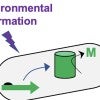
Rice team eyes cells for sophisticated data storage
Rice University receives National Science Foundation support to turn living cells, starting with bacteria, into random-access memory devices. These will be able to store and report data about their environments.

NSF awards 38 Graduate Research Fellowships to Rice students
The National Science Foundation has awarded 38 Graduate Research Fellowships to Rice University students.

Living sensor research wins federal backing
Rice researchers are leading a federally funded project to improve communications between microelectronics and microorganisms.

Inaugural class of Rice Innovation Fellows announced
The Provost’s Office and the Liu Idea Lab for Innovation & Entrepreneurship (Lilie) have announced the inaugural class of Rice Innovation Fellows, a program that will provide educational and financial support to the next generation of scientist- and engineer-led spinout ventures.

Grant backs effort to build useful bacterial colonies
Rice scientists have won a grant to advance the development of custom-designed microbial colonies for a variety of applications.
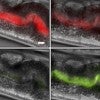
Light flips genetic switch in bacteria inside transparent worms
Researchers from Rice University and Baylor College of Medicine have shown that colored light can both activate and deactivate genes of gut bacteria in the intestines of worms. The research shows how optogenetic technology can be used to investigate the health impacts of gut bacteria.
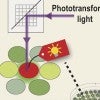
SPOTlight supercharges cell studies
Researchers develop a new method to isolate specific cells, and in the process find a more robust fluorescent protein.
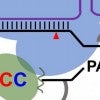
‘Bystander’ Cs meet their match in gene-editing technique
Biomolecular engineers at Rice have developed new tools to increase the accuracy of CRISPR single-base editing to treat genetic diseases.

Ocean virus hijacks carbon-storing bacteria
Rice scientists are analyzing the role of ferredoxin proteins produced when viral phages alter electron transfer in ocean-dwelling bacteria that produce oxygen and store carbon.

Ordering in? Plants are way ahead of you
Dissolved carbon in soil can quench plants' ability to communicate with soil microbes, allowing plants to fine-tune their relationships with symbionts. Experiments show how synthetic biology tools developed at Rice University can help understand environmental controls on agricultural productivity.

CPRIT grant bolsters Rice biosciences
Rice University recruits synthetic biologist Caroline Ajo-Franklin with a $6 million grant from the Cancer Prevention and Research Institute of Texas to bolster the university’s cutting-edge Systems, Synthetic and Physical Biology program.